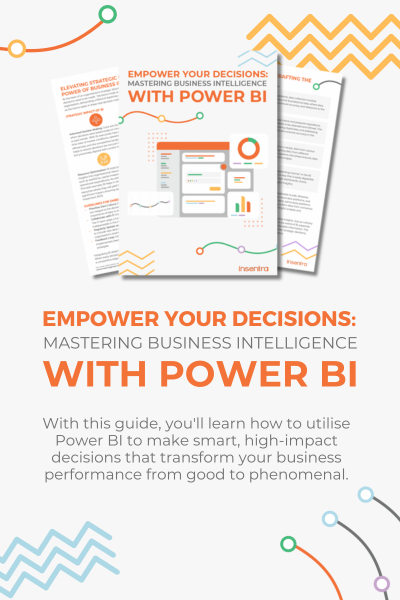The Download with Ronnie Altit ft Adam Clark
In this episode of The Download, Insentra’s CEO Ronnie is joined by Adam Clark, Founder and CTO of Sharing Minds. Adam founded the company with a deep passion for technology, people, and the desire to solve people’s problems. Throughout the episode, they discuss decision making in business, the importance of self-belief, wins and challenges, and what the future has in store.
TIMELINE / KEY POINTS:
0.23 – Hear Adam’s story about life and work before Sharing Minds
3.37 – The power of a relationship
11.18 – Tough times
19.31 – Identifying weaknesses, and turning them into strengths
22.43 – The internal unwritten mantra…’We always work Partner to Partner’
29.27 – The future and beyond
TRANSCRIPTION:
Ronnie Altit: Hello again, everyone, and welcome back to The Download. It’s been a long time since I’ve a done a Download. Today, kicking off our Download series again is Adam Clark from Sharing Minds. Adam, welcome to The Download.
Adam Clark: Thanks, Ronnie, glad to be here.
Ronnie: Great to have you, mate. We’ll sit here on the couch and we’ll have a little bit of a chat and talk a bit about you and your history, et cetera. One of the things that I always find out our audience loves to here is your story. You’ve been running Sharing Minds for eleven years now?
Adam: Yup, just over eleven years.
Ronnie: Which is fantastic. I mean, credit to you to run a business over eleven years. Most businesses have failed well and truly by then, sometimes multiple times as well. Prior to Sharing Minds, what’s the Adam story?
Adam: It’s interesting. I have always been a technologist. I’ve always worked with technology. I actually got into computers, came home from school, did something to my Dad’s computer, he was a builder. I had basically three hours before he gets home to get his building package back up and running. That was it, I was into computers.
From there, the journey was very much– Yes, I enjoy the geekiness, I suppose, as we call it, but at the same time, I like talking to people. I liked solving their problems. For me, I went through a number of different roles and a number of different IT organisations, from fixing computers through to event management in the Asia Pacific region.
I got into public service at one point. What we had is, the public servant, I was relieving him while he went on long service leave. He turned around to me and he goes, “Adam, we’ve got ten months worth of work to be done here, I’m going for eight, I’ll see you when we’ll finish off the last two months together.” What actually happened is eight weeks later, I was sitting there and going to my manager and saying, “Okay, I’ve done all of these, what’s next?”
Ronnie: Ten months in eight weeks?
Adam: Yes. It was a combination of scope and just the mere fact I was motivated to get things done, and I managed to convince my manager to help me hire someone to help me with it.
Ronnie: You’re in the public service, so motivated to get stuff done, taking a project from a long period of time into a short period of time, a lot of the time it happens is by putting in lots of hours. But you’re in the public service, am I to assume that you didn’t have to put in crazy hours to do it, or how did that happen?
Adam: Back then, no. What it was is, I just reassessed the workload and so are a couple of ways we could get jobs done. Easier by doing some scripting, by talking to a few people and rearranging the workflow, which just helped us get a bit done.
However, when we got that done and I walked to my manager and said, “What’s next?” He said, “I’d like you to go and talk with these people at Microsoft. They’re looking to buy this product.” This product was infamously called SharePoint, well, back then, it wasn’t.
Ronnie: What was it called?
Adam: A product called, Encompass. If you know where to look, there are still references to Encompass in even Office 365 today. However, in doing that, what I found was I was finally getting to do the two loves of my life, which was I got to play with the technology, but I got to talk to people about their problems and figure out how that came together. That was the start of the journey into SharePoint.
Ronnie: How long did you that for before you saw an opportunity to just start your own?
Adam: That’s another interesting story. I spent a lot of time. I moved out of public service very quickly. After that, back into the corporate sector and spent some time with some interesting firms, both small and large, globals. I was very fortunate that the global I was working with brought me across to the very first global SharePoint conference over in Redmond.
I also happened to have my wife there. While we were there, I was talking through a few bits and pieces. Basically, my wife turned around to me and said, “Look, you’re talking about these things in this way, why don’t you have a go yourself?”
Ronnie: Behind every great man is a great woman.
Adam: That’s it. I have to say, after eleven years, I would not be doing this without my wife.
Ronnie: That’s lovely to hear.
Adam: She’s still a hundred percent behind it, and helps out in the business where she can, even today.
Ronnie: Let’s just stop there for a second, right, because I think that that’s something that a lot of people who start businesses don’t necessarily realise, as they’re sort of doing a business, is the power of the relationship. It’s not wife and husband, it’s whoever it might be that’s in a relationship together, because running a business is hard going. It can be really tough.
Adam: Like most businesses, we are one hundred percent self-funded. There is not external funding that has over gone into the company.
Ronnie: You boot strapped yourselves?
Adam: That’s exactly ironic.
Ronnie: All those years ago when bootstrapping didn’t even exist.
Adam: Yes. I’m very proud to say we’ve always been in the black. We have always done very well with our projects and delivery, and so on and so forth, but at the same time, being a sole owner of a company, we’ve had our tough times as well. That’s the point where a lot of people that don’t have that support behind them, they just go, pack it in and go home.
There’s days where I might have woken up and go, “You know what, I just can’t do this.” It was merely the fact of my wife standing up behind me and saying, “You can do this, Adam.”
That made me put one step in front of the other. That’s gotten us to where we are today.
Ronnie: That’s excellent. Let’s talk a little bit about that because it’s really easy to sit here and talk about how wonderful it is running your own business, but there’s a couple of things that you’ve done that aren’t necessarily common. Well, certainly one, and that is that you’re a technologist who’s now set up over the past eleven years, of proven commodity, a successful business.
That transition from technologist to business owner, tell me a little bit about how you went through the challenges that you faced.
Adam: Some of it comes back to where I started in the conversation, my father was a builder. He’s owned a builder. The DNA of running my own business was always there. The entrepreneurial mindset to go out and make it happen was always in the brain. To combine that with the love of technology, what it was was to stand up and take the risk and go, “You know what? I can do this.”
I can pick this up, I can bring something like these global organisations that have all these great methodologies, these great practices, all these resource pools, all these conversations, how can we take that? The whole idea behind Sharing Minds was, how do we actually take that from the enterprise that’s doing everything and bring that into a focused end today that can deliver on something really good in a niche sector like information management.
Ronnie: What I’m hearing there is a lot of self-belief.
Adam: Yes, absolutely.
Ronnie: I think that’s a critical component of any entrepreneur. I always say why would I pay a person that can until I prove him a person that can’t. That’s really as it relates to my home handyman attempts. That’s self-belief. I’m sure you would share this, that that’s a really critical component when times get tough.
Adam: Absolutely.
Ronnie: Because it’s not always smooth sailing. It’s so much easier when you start and there’s you, and there’s your time and then it’s like, “Oh, I’ve got to hire the first person now,” and then, “Oh, how do I pay them, how do I manage them? They don’t work like I work,” et cetera, that journey. How many people are there now in Sharing Minds?
Adam: We’re twenty-four people today in Brisbane, Sydney and Melbourne.
Ronnie: You started in Brisbane?
Adam: We are still headquartered in Brisbane where we have twelve people at the moment. Our engagement without clients is based around a question of why. With every project that we start, the first question, we go– I’ll put it another way. They all come in and they say, “I want to do a SharePoint internet, I want to do an Office 365, I want an Azure,” all of that.
Our first point is to say, “Can we stop talking about the technology,” and go, “Why are you wanting to do this project about an internet, about a portal, about some type of analytics,” or whatever it is. We want to take the technology out and understand why. By understanding why, the technology rights itself.
Ronnie: Simon Sineck would love to hear you speak. He’s always about people don’t buy what you do, they buy why you do it. And what you’re saying is, “We don’t want to deliver what you want; we want to deliver why you want it.”
Adam: That’s right. In fact, some of our projects have been very terse in the delivery, because when we’ve asked the why, we’ve sometimes had to say, “No. No client, you don’t get this.”
Ronnie: Customer’s not always right then, is that what you mean?
Adam: Correct, the customer isn’t always right. The reason we exist is to help the customer deliver upon what they need to deliver on their requirements on what their executive is asking them to do. By asking the why, sometimes we need to help a customer change their perspective on things in order to deliver the outcome that they really need.
Ronnie: Again, let me talk about self-belief, but in that, we also talk about maturity of consulting. I think a lot of consultants struggle to make that next jump of, “I am the expert in what I’m doing. They’re paying me for my opinion, so if I don’t agree with what it is they’re looking to do, by me telling them, I’m actually doing what they’ve asked me to do, which is consult to them, not just go with whatever it is that they want and deliver what it is that they think they want when I know that’s not going to be the right outcome.” How did you make that transition?
Adam: In one of my earlier jobs, I had a couple of people who got around me. I can think of a few different moments where sitting in– I didn’t drink coffee until a few years ago, but there I am with like my fourth cup of coffee for the day. I remember one guy saying to me, he says, “Adam, this is the way you need to look at things. If you can put all of these into these boxes like this, you’ll always be able to figure out the way to go through things.” He was very much referring to the consulting mindset.
Ronnie: What were those boxes?
Adam: The boxes were basically the various areas of business, how the psychology of a different problem works. When you’re looking at SharePoint, we’ve all had good and bad SharePoint experiences, that’s my saying myself. What he was trying to help me to learn is to go, yes, you understand the technology, but if you don’t understand why those boxes fit in that order and how to stack them together, you’re giving something that their perception is incorrect.
By actually turning around, looking at the business, looking at the technical together, what we get is an outcome of which meets, hopefully, their requirements.
Ronnie: Let’s come back now. You’ve started Sharing Minds, and you said you’ve had some tough times. Talk to me about some of those tough times.
Adam: We all had the global financial crisis a number of years ago.
Ronnie: We were the crazy ones who started our business in the height of the global financial crisis, right? If that’s not self-belief, I don’t know what is. It’s something we might call a foolishness, but hey, we’re still here ten years as well. You are not so far behind us. You’d have started probably just as the financial crisis happened or was about to happen.
Adam: Not too far, we’ve been going a couple of years. We’d grown to just down to ten people when the GFC hit. I also had a bit of a personal tragedy in my life at that time that I lost a family member. That was a really trying time for me. I had some close people I lost contacts within business as you went insular.
It really came to the point to go, “What am I going to do here? Is this really worth it?” As you say, that’s where the self-belief comes in. As a business owner, you go, “You know what? This hurts. but I’m going to stand up, I’m going to do this. I’m not going to just hide myself away.”
There are people who are asking me to do things for them. There are employees that I need to make sure that they’ve got work to do things, but in the back of your mind, you’re thinking of all these things, you’re going, “Hey, I’ve got to be able to stand up. I can’t just hide myself away.”
Once again, it comes back to the support of my lovely wife, Olivia, that she just was behind me every step of the way. That’s why I’m here today.
Ronnie: Okay, and your passion. You’re one of the few people that I’ve spoken to, and I’ve known you for quite some time now, but one of the few people I know who is so incredibly passionate about SharePoint and about the value it brings. It’s not the product, it’s the output from the product that I think is what really motivates you-
Adam: Absolutely.
Ronnie: -and how the product can make a difference to an organisation. If we looked at that from that sort of lens, and as of all of the projects that you’ve done and taken on in the time that you’ve had Sharing Minds, what would you say would have been one of the most profound impacts that you’ve delivered as a business to an end user organisation?
Adam: There’s a couple. If we look through some of the early ones where I took on very early days of government contract. Myself and a couple of guys, we were working inside of a government project for close to three years, on and off.
In that process, we got to look at it through different angles. Instead of being the bureaucrat that was delivering on the services or just the IT person, we were a contractor that was brought in to deliver an outcome under a specified procurement limit.
How do we do that? We also had the opportunity to help bring in some of our competitors, or we saw them as competitors at the time. We brought them in to help do things. We got exposed to a whole range of different processes, different methodologies, different ways of thinking of things while we were still in our inception.
The great thing about that is that project, it’s gone on to bigger and better things. However, our project is the first project that was delivered on time and on the budget, and that was back then. At the other end of the scale, we’ve just finished, in the last few months, a delivery to a major airline.
Once again, this was a move from a non-supported technology system over to Office 365, not just SharePoint. In delivery of that, that project is well through taking a lot of those learnings over the years was delivered a week before it was supposed to be delivered, and was delivered on budget, which is unheard of in large IT projects.
Ronnie: That’s great. I get that you’ve delivered some great projects and you’ve delivered them on time, on or before budget. What’s the profound impact that’s had on the client? It’s not just because you delivered on time, like the actual technology, we implemented this solution in SharePoint that delivered this outcome for that type of client.
Adam: Primarily, there were three main things across most of these implementations that we’ve come across. Regardless of whether you’re asking for– and everybody asks for an internet, everybody wants to go on moving to this. These three key things, if done right, have an impact on the business.
The first one is transparency, is the first and foremost one. That from an executive level, I’ve got transparency about what is happening inside of my environment. That’s going to create efficiency. The second one is, is that level of efficiency that is created because the transparency is there.
People are very aware of what is actually happening within the environment. There’s no more walking in and getting three cups of coffee to figure out where my document is sitting today, it’s right there where you know it is.
The third one is security. In a day and age where we have so much information overload, what organisations are looking for is to make sure their information is secure, whether it’s inside of their environment or it’s going outside of their environment.
Those outcomes have a number of different items. One huge impact, we did an implementation over in Perth a number of years ago. Through going through the delivery of that, we ended up saving them a significant six figure amount on their insurance premiums.
Ronnie: Okay, that’s a profound impact.
Adam: That was a profound impact. During the time that we were doing the implementation, their processes were poorly managed, they were all manual, people had no idea what was going on. Being able to implement these processes into a system, and as you say, very passionate in the SharePoint space, this is why. Because not only are we creating those areas of efficiency and transparency, but we’re also saving business money.
Ronnie: When you’re talking to clients about what it is you do, is there often an ROI discussion that takes place?
Adam: Yes, absolutely. ROI and TCO, very important in the space that we work in, because people are either looking to implement these systems because they’re looking to increase their profitability. They want to know how long it’s going to be before they see their return on investment, or they’re looking to save money. They’re looking to say, “How can I get my workforce to be more efficient in what they’re doing?”
All the time, it’s usually within the first one or two meetings we have that type of a discussion.
Ronnie: Changing track, again, our business at Insentra, we say we’re partner obsessed, right? That’s why we’ve trademarked the term partner obsessed, globally. Our whole essence, our whole reason for existence is to be there to augment or be the skills for the channel, for all of the resellers, if they have or don’t have the capability, so we could be able to do that for them, et cetera.
Your business takes a hybrid approach. When you started your business, it was very much a direct play.
Adam: Correct.
Ronnie: Over recent times, in the past twelve to twenty-four months, you started to get requests from other partners in the industry saying, “Hey, we need this SharePoint skill,” which, firstly, is mainly to the reputation you’ve built in the industry. We all know that this industry is as small as it can be. Everyone knows everyone and everything about everyone’s business.
What happens very quickly is when something goes wrong, that spreads like wildfire. When something goes right, it takes a lot more time for that to trickle fade its way out, right?
Adam: Yes.
Ronnie: That’s why we all have a marketing device. What was it that you think was the tipping point there for you in shifting a lot of your business to go through the channel?
Adam: There were two specific things, if we look at it. The first one is– we’ve had this discussion off camera where we’ve talked about, I’m a geek at heart, I’ve said it earlier. The whole thing is, as a business owner, I love the technology. I do well at the business, but I love the technology.
The first thing was, was to turn around and go, “I need to help get someone to come in.” At this point, I actually took a step back from the direct day-to-day leadership role within the business, and I brought in a general manager who I’d gotten to come in to look after sales, marketing, the team in general, so that I could actually work around trying to figure out what the strategy for the business would be.
Ronnie: Hold that thought for a second, because I think we’ve got something else here that’s a real characteristic of an entrepreneur, and a characteristic of someone who grows and builds a business, right? What I’m hearing there is, I recognised that there were things that I wasn’t able to do because I was spending most of my time working on what I was really passionate about. I think I also heard, and the stuff that I wasn’t actually getting time to do– not only did I not really want to do it, but it wasn’t my strength.
Adam: Correct.
Ronnie: I identified that I had something that’s not necessarily a weakness, it’s just not a strength, and you hired around your own requirements to fulfill and to actually augment yourself. What was the outcome of that? Did your business change as a result of that?
Adam: Absolutely. Overall, we’ve seen over 25% growth year on year for the last three years?
Ronnie: Since appointing the GM?
Adam: Since appointing the GM. Took a little of time and little bit of pain to reorganise the business, but the other one is, once we were able to take that step back, we looked- and this is where the partner community come in- and go, “All of these guys we’re competing against here, they’re struggling just as much in this space,” if not more, because they grow technologists but they don’t think about the business aspect of information management as well.
This is where we’ve gone and said, “Guys, can we stop competing? How about we partner on this?” If we all make a little bit of money, we get a better outcome for the client. That is where I was able to step back and go, “We’ve got to change the way that we’re looking at things.”
Ronnie: I know the answers to these questions, but I’m curious. From my perspective, I’m curious from your perspective because partner to partner, it’s a challenge. There is always that niggling part in someone’s mind that says, “They’re going to take my client, and they’re going to take my client direct.”
You’ve got different personality types that you deal with from a sales perspective, where your partner might want to own the sale, but you know that it may not necessarily be going the way that– Have you found that balance of gaining the trust and managing a deal but not really managing an opportunity?
Adam: It changes partner to partner and personality to personality. Particularly some of our larger partners where you have potentially hundreds of reps all around the country, the different nuances between them there.
Overall, though, we have a little bit of, it’s an internal unwritten mantra that says, “If our partner brings us a deal, if the client comes and talks to us about something that’s got nothing to do with the partner, we still go and talk to the partner first.” We say, “No, you have to transact through the partner that we are working with.” We will not go and close that door.
Ronnie: I think that’s a really critical point, is that you have a very hard and fast rule that you can stand up and testify in a court that says, “No, once we’re introduced by a partner, we won’t transact direct with that customer.”
Adam: Correct. In the years that we have been doing it, we have had one instance where we have gone direct because the partner themselves said, “We don’t want this, but we want you to have it.”
Ronnie: They don’t want the risk?
Adam: That’s exactly right. That’s only one time. We’ve actually walked away from another, I think, it’s either two or three opportunities because they didn’t want to go through the partner, and we said, “Sorry, we’re done.” That was a hard one. Particularly, as we were going in revenue, so we were spending a lot of time hiring new resources and building the company up. This was a couple of years ago.
It was a very strategic decision to say no. This is the type of ethics that we want to have inside of our business.
Ronnie: I think that integrity is super critical as a business owner, regardless. You have a means of doing things. In fact, I literally, as I was coming here today to meet with you, I was on the phone with another organisation who also plays in the channel market like we do.
We were just having a chat and I said, “You know, the reality is, I’m not going to go and use your people.” For me to buy a channel company’s people to then sell to another channel partner for a margin and margin and margin. I’m like, “You know what? My integrity doesn’t let me do that.” I’d rather just introduce you two, and off you go and have a great time. We’ve had the same scenario, by the way. For us, it was a little bit worse. We were six weeks, I think, into opening our doors, and I had a contact that I’d known for many years who said, “Ronnie, I’ve got this piece of work for you.” At that time, ten years ago, it was an $80,000 piece of work.
It was right at our wheelhouse and we were totally able to deliver it. I said, cool, heres our model, who would you like us to work with to transact this with you?” The response was, “No, I want to work direct with you guys.” You extensively will be working with us directly, you’re just not going to procure from us, but you will still have the direct relationship.
“No, not interested. If you won’t do it direct with me, we won’t do this piece of business. I will go and take it somewhere else.” Interestingly enough, he took it to somebody who couldn’t do the work, who then employed us to do it. At the time, I didn’t know that was going to happen. Yet, $80,000 just when you opened the door, that’s going to get the business going for a matter of months. It’s significant.
I think, unless you’ve got those absolutes in place, it’s very hard to build trust, and we do. Let’s face it, we operate in an industry where trust is very very easily lost, and it’s very very hard to gain.
Adam: We work in a society that’s like that. That it takes years to build up and it just takes the wrong conversation and it’s all gone.
Ronnie: Often it’s the perception, not even the reality, right?
Adam: Correct.
Ronnie: That whole expression, “Perception is people’s reality.” Struggle is probably too strong a word, but we’ve been challenged by the time it takes to build that trust, that, “Hey, you know what? We’re not going to go direct. We’re not going to steal your client.”
That requires a lot of trust and requires that integrity that you were talking about. Has your business transformed as a result of having a lot more partner-based business now?
Adam: Absolutely, we’re finding our overheads are a lot lower because we’re not having to employ and put a lot more effort behind us. I was channelling in order to get work, but we’re also finding the repeatability within clients. We’re getting a lot more repeat work.
When you’re a small business, of course, when you’re working direct and your account managers are always working on what bigger, better deal is that comes next, whereas under the partner channel, we’re working with the partners and we’re completing off work, and then their sales model is actually talking to the clients and coming in on insane, “This is what we want to do next.”
It’s actually got to a point now where our direct business is inversely proportionate to what we’re actually seeing in our partner channel. Not only that, but we’re not having to employ direct sales people anymore. We’re more looking towards how we’re going to manage the partners, and the direct work we’re doing these days is a lot more around organisations coming to us and say, “We would like your special skills for this particular area.”
It’s an interesting place to be in as a business from where we talked about before that we started to where we are today. That it’s more along the lines of instead of actually taking everything, it’s going, “Are we actually aligned to what the culture of this business is doing?”
Once again, we’ve had these talks, you and I before, where it’s kind of like not all clients are the right fit for the culture of organisation that we have. Sometimes it’s easy to say, “Look, understand what you’re after. I’d rather like to get you to work with these guys here because they’re going to be able to help you more than we are.”
Ronnie: The ability as well as a business centre to say no, not just to the client but to the piece of work, but it will ultimately benefit you as a business. All right, one more change-of-tack. You’re eleven years in, you’re working in what realistically there’s not too many organisations in Australia who have depth of SharePoint skills, and you have numerous projects behind them. Also, who have a team who’ve been with them for a long time.
It’s a very very finite group of partners, yet it’s a very evolving piece of tag. It’s fundamentally core to a lot of what Microsoft is doing with teams. OneDrive is backended by SharePoint, SharePoint is really underpinning a lot of that sort of N365 story now.
The opportunities ahead of you, nothing short of significant. What do you actually feel is going to be the next iteration for Sharing Minds? What’s the next two to three years look like? Where do you think customers are going to take you, partners are going to take you?
Adam: If I could actually get out my crystal ball and have a look at, I’d love to know where exactly it’s going to be. However, I think, what we’re going to see is we’re going to see a lot of development in the Office 365, Microsoft 365 space. We’re going to see lot more in the Azure space. We’re going to see that Office 365 Dynamics piece come together a lot more with Azure, from the technology enablement side of things.
I think we’re going to see a lot more businesses that have been holding back on their technology to a point of finally jumping to river, so to speak, and move to the Cloud technologies. I think, at the same time, we also had in the last eighteen months, not put our toe. We kind of jumped into the river in the freezing cold river of change management.
Ronnie: A huge market.
Adam: A huge one, yes. We’ve had some really good success, because in a lot of what we do in this collaborative space, we’re doing a lot of change management as part of the project. Strategic people where buttons sit on, the evolving technology because it changes so quickly. We do a lot of training with organisations.
My general manager and I, about eighteen months ago, decided to put forward for some change management. That’s been evolving a lot. Now, we’re seeing multiple streams of organisational change management, but it dovetails so nicely into the collaboration piece that we’re doing, where we’re helping everything from rollouts of new internets through to people replacing their entire desktop and mobile fleets around the place.
It’s getting to a place now where we’ve got a good set of intellectual property that says, “Hey, guess what? You can take these objects and you can sell them. That’s where I think Sharing Minds is going to see. We’ll always be doing the services and the tech. It’s core to who we are, but at the same time, it’s looking at those products and services that can help to evolve that.
Mixing those two together is always going to be delivering greater outcomes to our clients.
Ronnie: I think the change management things is a really massive market opportunity. I can’t remember the statistic of what Microsoft depicted at, but it’s in the billions over the next coming years. Maybe you should change your company name to Changing Minds.
Adam: A little anecdote is, everybody always says that it doesn’t know where technologists, I guess, Sharing Minds, “You guys are psychologists.” I have a little giggle and I always say, “Well, with some of our clients never know we should be.”
Ronnie: Change management, though.
Adam: Exactly, change management, that’s where it’s coming in because you are psychologically helping people to go, “I’m in this role and I’m in this role.” What does actually rolling out a new internet, or giving me a tablet that allows me to get to new data or raw, whether I’m doing cognitive services and facial recognition.
How am I teaching the people who come in, and instead of punching their card, they go to smile at the camera. Those kinds of change management that is mixing not just the technology but process and people’s psychology together.
Ronnie: Absolutely. I think the psychology and change is tough, anyway. Most people– I don’t know if you’ve ever read, Who Moved My Cheese?
Adam: I’ve heard of it, haven’t read it yet.
Ronnie: I would say that, everybody here, if you haven’t read Who Moved My Cheese, and you struggle with change, it’s a fantastic read. A lot of people do struggle with change, and they typically fall into one or four different kinds of being. And I won’t steal the thunder of the founder of the book, you’ll achieve it in what a really cool cartoon that seems like it was made in the 1960’s about it.
The psychology of people to accept change, then to adapt to the change, and then to maximise what comes out of the change is actually an entire sphere in itself. I think, that in our industry, what we’re seeing now is that the whole concept of adoption and change management is really critical, yet, the psychology behind it for a bunch of IT individuals is an interesting transition.
The fact that you’ve identified that, and you can see that as being critical, I think is really important as well.
Adam: It comes back, once again, to the why. Why is someone taking this on? We’re now, I think it’s five change management projects in over the last eighteen months. Some of them quite large, and two of them are moving into the next phase of change management.
Organisations see real value in being able to figure out why they’re getting a new piece of technology and how it’s not just going to affect the CEO but how it’s going to affect Annie on the reception desk as well. That’s what we’re looking at, that they get real impactful change in what they’re actually getting.
Ronnie: More on the 365 space, more on the collaboration space, more in change management, and something you mentioned as you’re talking about the boxes, which I know you’re passionate about and I know is critical is the whole information governance.
Adam: Yes.
Ronnie: I’m about to do a video tomorrow, actually, with a new product that we’re bringing to market here all around information governance, so watch out for that one. Governance around who can access what and who gets to own the access, I think that that’s also really interesting space.
Adam: And how long they retain it. Because you and I know because we’ve been talking.
Ronnie: That’s right. Thanks so much for joining us here on The Download. Really been fantastic to hear your journey, to hear some of the challenges you’ve had in what you’ve undertaken. To understand the value of partnership not just in business but also at home, and the value of having someone behind you, the value of self-belief, the importance of what it is you do and your passion for why you do what you do. I think that actually is something for all of our audience, they’d look at that and go, “Wow, I kind of see some of the things I need to make myself solo entrepreneur.” Because without that kind of passion, the tough times become really tough. But when you’ve got that passion, you’ve got the great times, they’re unbelievable.
Adam: Yes, absolutely.
Ronnie: Adam, mate, thanks so much for joining us here on The Download.
Adam: Thanks, Ronnie. Thanks, everyone.










